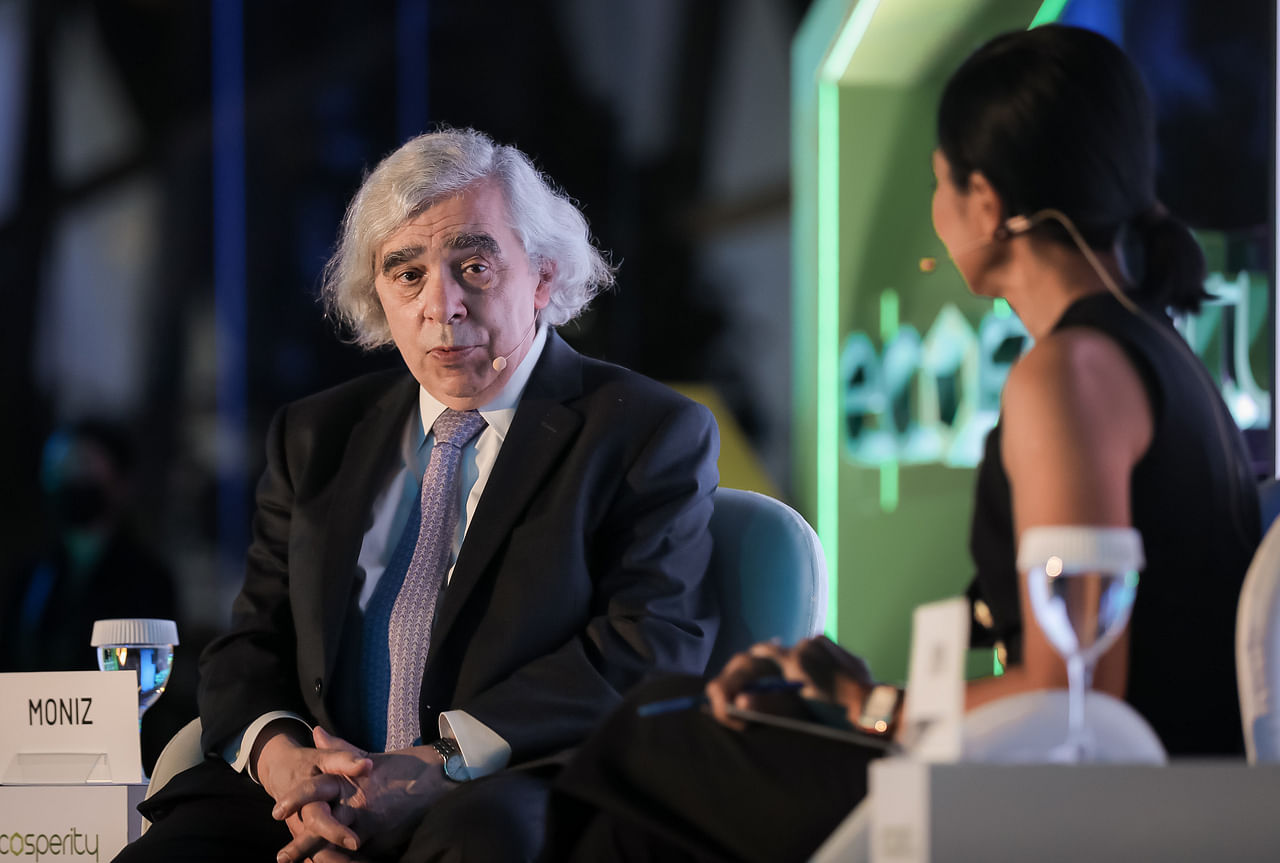Ukraine war will disrupt gas market long term, Russia's nuclear energy may be hit: US energy expert
Sign up now: Get ST's newsletters delivered to your inbox

Russia was the world's largest exporter of natural gas and the second-largest oil exporter in 2021.
PHOTO: AFP
Follow topic:
SINGAPORE - The Russia-Ukraine war will leave the gas market disrupted for a fairly long time, while sanctions will degrade Russia's oil capabilities, said United States energy specialist Ernest Moniz on Tuesday (June 7).
"It is going to take significantly longer for Russia to figure out if and how it can redirect all that (natural gas), if Europe does indeed turn off the spigot and stops receiving the gas," added Dr Moniz, who was energy secretary under former US president Barack Obama.
Last year, Russia was the world's largest exporter of natural gas and the second-largest oil exporter. With much of Russia's fuel taken out of the market with economic sanctions against the country, oil and gas prices have shot up.
The European Union last week agreed to phase out about two-thirds of Russian oil imports that come in via tankers by the end of the year. It is also debating phasing out its imports of Russian gas.
It has been posited that perhaps China or Japan would take the natural gas, but it would be difficult to redirect the gas in the pipelines, noted Dr Moniz, who is currently the president and chief executive of Washington-based think-tank Energy Futures Initiative.
He was speaking at a gala dinner during Temasek's annual sustainability conference Ecosperity Week in Gardens by the Bay.
As for Russia's oil situation, the withdrawal of western oil and service companies, and the sanctioning of technology imports from the west is hurting the country's oil capabilities, he said.
But there is a possibility for China to move in and replace the western expertise in technology, unless the US pulls the trigger on secondary sanctions, Dr Moniz noted.
He added that if China's oil demand happens to increase, that could tighten the market and cause oil prices to shoot up further.
The energy specialist also acknowledged that fossil fuel reliance will increase in the near term, amid the energy crisis.
"The one thing a political establishment can't survive, is the lack of reliability on energy supply... so Europe and others in Asia will be using more coal."
Even so, the war is in no way reducing the pressure for the energy transition, he said. The conflict has increased the pressure to accelerate the transition, but it has caused a bump in the road towards that clean energy goal.
"The trouble with bumps in the road is that carbon dioxide in the atmosphere is cumulative. And if we have a bump in the road for several years, the additional emissions are something we will have to pay back eventually," said Dr Moniz.

The war is unlikely to cripple Russia's standing as an energy superpower, he added.
"They just have a lot of resources. But certainly their customer base will be quite different. And perhaps their level of production will be somewhat different."
But the conflict may cause Russia's stronghold in the nuclear energy arena to lose its footing. He noted that Russia is an international player in the nuclear fuel cycle, and supplies more than half of the world's nuclear enrichment, including about 20 per cent of the United States' enrichment supply.
"It's hard for me to believe that Russia is not going to suffer its market share from this. The US is clearly going to stop Russian imports, probably replace the enrichment capacity for example," said Dr Moniz.
If Russia loses significant market share, other players such as China, Japan, Europe and the US have to step in - in the case of the US because its supply chain has fallen into disrepair, he noted.
On the topic of promising alternative fuels, a lot of potential is being seen in green hydrogen - a clean fuel produced by splitting water into hydrogen and oxygen using renewable electricity.
But Dr Moniz is more enthusiastic and hopeful about the lesser known turquoise hydrogen. This is produced by running methane through very high temperatures - a process called pyrolysis - to split it into hydrogen fuel and solid carbon.
Turquoise hydrogen is less expensive to produce compared with green hydrogen, and it is easier to store and sequester solid carbon compared with carbon dioxide, he added.
Carbon dioxide is sequestered in the making of blue hydrogen, when the fuel is produced using natural gas. Blue hydrogen has been touted to be the interim low-carbon fuel while green hydrogen eventually gains ground and becomes more viable.
But turquoise hydrogen can be a close contender for blue, or even green, hydrogen.
Dr Moniz added that the solid carbon produced could also have market value and could be used in tires, ink and for improving soil.

